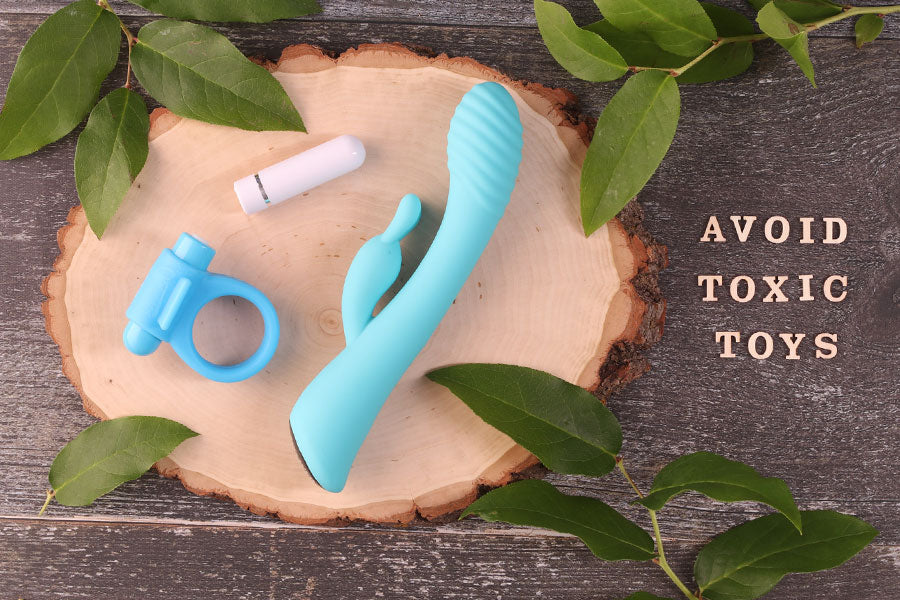Trusted for 24+ Years
Disability, Sex & Discrimination

Dr. Lisa Lawless, CEO of Holistic Wisdom
Clinical Psychotherapist: Relationship & Sexual Health Expert

Sexuality Does Not Depend On Ability
According to the CDC, nearly 50% of American adults have some form of disability or chronic illness. With very few sexual resources or products that address the many disabilities that people have, they are often neglected, which means we must do better.
For many sex therapists, sex experts, sex toy manufacturers and retailers, addressing sexual techniques and sex toys often assumes that one is not disabled. If a sexual health professional addresses disabled people at all, it is typically in the form of a simple article reviewing sex toys that have hands-free features or sex positions for someone in a wheelchair.
The problem is that these brief articles fall short of the intricacies of various disabilities and how they can impact sexual functioning, desire, and relationships. What about the many disabilities that come from chronic illness, mental health challenges, cancer treatments, long COVID, and many more?
That is why we provide multiple sexual health resources that review the critical issues affecting those in the disabled community, as well as a variety of sex toy features that can help with a variety of disabilities.
Health Inequities
Health equity has long been ignored for disabled people, and sexual health equity is disregarded even more. Sexual health inequities are reflected in the lack of resources that help enhance their quality of life through access to find appropriate sex toys, sex tips, and relationship advice.
People with disabilities have less access to health care and sexual health support. They are often excluded from access to sexual health professionals, sexual health resources, and sexual products. While people with disabilities may not always be able to do everything they desire, what they can do matters. Thus, it is important to celebrate those abilities and make challenges more manageable.
Discrimination The COVID Pandemic Revealed
During what has become an endemic of COVID-19, Delta, Omicron, Kraken and other variants, the disregard for the health and wellness of those with disabilities has become a reminder of continued discrimination. There has been a great deal of frustration by disabled people who have yet again been ignored, undervalued and in some cases, blatantly discarded.
This is also true of those over the age of 65 and those who have comorbidities, which is the presence of two or more diseases such as diabetes, heart disease, asthma, autoimmune diseases, etc. The irony is that long COVID is causing many people to become disabled with health issues that include sexual dysfunction. Thus, in many cases if one were without a disability or comorbidities before COVID, they may find they meet that criteria after contracting it.
In 2021, Penn State College of Medicine researchers determined that at least 50 percent of people who survive COVID will experience various physical and psychological health issues for six months or more. These newly disabled people will need care for various psychological and physical symptoms, which includes help with sexual health issues. We hope that this influx in disabilities will help decrease ableism and bring more awareness to the inequities that disabled people face.
Ableism
Many people participate in ableism which is a social prejudice against people with disabilities. This is often done unconsciously out of ignorance of the many aspects and challenges of various disabilities. However, more troubling is when disabilities are disregarded on purpose, even when pointed out.
Simply not being inclusive of those who are disabled can be a form of prejudice, whether intended or not. In other cases, some people may be ableist by minimizing or explaining a disabled person's challenges to them, giving unsolicited advice about alternative treatments, or preaching the evils of Western medicine and medical treatments.
In the case of sex toys, many manufacturers and retailers neglect the needs of those with physical challenges. It is essential to understand that most of us, at some point, whether due to aging, disease, or an accident, will have some form of physical disability.
No matter the type or depth of challenges, we need to be talking more about it in general and in regards to sexuality. An excellent movie, "Crip Camp: A Disability Revolution," as seen on Netflix is a great way to explore some of the issues and activism for those with disabilities.
Fear Of Disabilities
It is not uncommon for disabled people to feel invisible or labeled a freak. Disability can be scary for people, but keep in mind that it can be uncomfortable for both non-disabled and disabled people. That is why education and communication are the most important things for overcoming disability anxiety. It is perfectly normal to have fear, but talking about it allows us to be in control of it rather than letting the fear have control over us. Approaching disability in collaboration with one another in any relationship, professional or personal, is imperative.
Avoiding Subtle Discrimination
The most apparent form of discrimination toward people who are disabled is outright bigotry or omission. However, there are more subtle forms of discrimination that should be avoided as well. People who struggle with disabilities of any kind should never be put in a position to defend themselves. Never assume you are an expert on what someone else experiences; instead, approach with compassion, a willingness to be educated, and explore various approaches to what may help.
In addition, disabled people are often desexualized and denied autonomy regarding their own sexual desires and needs. Their disabilities are not what defines who they are, nor should they be treated as a diagnosis rather than a person. Disabled people should always be encouraged to find their preferred ways to express their sexuality.
The Fear Of Being Misunderstood
Often, people shy away from discussing disabilities out of fear of being misunderstood or possibly offending people. However, we must understand that we will make mistakes no matter our best intentions because we all have biases. It is not a matter of whether or not we have biases; it is instead a matter of how much and how deep our bias goes and how willing we are to look at our biases and attempt to work on them. We can begin by listening with empathy and asking questions with an open heart and mind.
The Danger Of Staying Silent
Most of us avoid looking at or discussing our biases for fear of being misunderstood. Because of this, many people stay silent, but we live in a time when essential advancements for equity, diversity, and inclusivity should be made. Thus, it is better to make mistakes, allow ourselves to be uncomfortable, and learn about the blind spots we have in our thinking with humility. By choosing the courage of vulnerability over discomfort, bias, and ignorance, we can be grateful for learning how to make the world a better place for others while growing as a person.
Sex Professionals & Discrimination
Just because someone is a professional in the field of sexuality does not mean they understand the issues the disabled community faces. Some are oblivious or, in some unfortunate situations, have resisted acknowledging or providing resources despite having been made aware.
When sexperts, clinicians, and sex toy retailers get called out on words or behavior that leads to or is a part of the oppression of someone, it is destructive to spend time defending oneself. Unfortunately, this has happened in the past and continues with some leaders in the sex toy industry. Instead of justifying or ignoring the concerns of disabled people, it is a time to listen, reflect and look for ways to do better going forward.
Understanding that our views are subjective to our education and experiences allows us to realize that there are other vantage points in understanding things. Too often, those in the field of sexuality come from a place of privilege, claiming absolute authority on the topic of sexuality without keeping disabilities in mind. It is time for that to change and to give disabled people the respectful consideration they deserve.
The Difference Between Ignorance & Discrimination
We are all imperfect humans. However, some of us approach life as a conscientious learning opportunity approaching things we do not know about, while others discard such opportunities with arrogance. Asking sincere questions or accepting feedback with an earnest and open approach is simply a normal part of learning. It only becomes discrimination when we refuse to listen or offer respect through our behavior regarding the challenges that others face. When addressing disabilities, it is vital to approach these matters with empathy. After all, how can any of us evolve without attempting to understand one another better.
Sexuality & Caregiver Challenges
Finding caregivers that can help disabled people with sexual health and pleasure can be challenging. However, it is important to understand that assisting disabled adults with sexual health needs with proper boundaries is a part of caring for the activities of daily living (ADLs) to increase their quality of life. This does not mean that an inappropriate line should be crossed; rather, it means that helping to make arrangements through the use of sex toys or other types of sexual release is appropriate. This is considered a controversial sex education topic, but it is important and should not be dismissed.
Sexual health is often ignored regarding disabled adults, as they are often seen as non-sexual, and concerns about being vulnerable to sexual abuse are also an issue. However, discussions regarding masturbation, STDs, contraception, and other sexual topics are vital.
Caregivers should be able to provide what is considered professional physical and emotional assistance. This is not considered intimacy; instead, it simply provides the care a human deserves. Professional boundaries such as correct anatomical discussion regarding sex and respecting privacy as well as personal boundaries of a disabled person are imperative if this is part of the care provided.
Sex Workers & Disabled People
While it is currently illegal in the United States, sex workers can also assist disabled people who wish to experience their sexuality with another person. Many disabled adults find it challenging to connect with people in that manner, and sex workers are sometimes a consideration. Some organizations outside of the U.S. connect people with disabilities and sex workers. These organizations focus on the issues of human rights, legal concerns, and discrimination, which surround these two marginalized communities. The mission is to protect the rights of people with disabilities to experience sexual expression and physical intimacy.
Some people with disabilities have found such services beneficial, while others see transactional sexual touch as unfulfilling. While utilizing the services of a sex worker may provide physical relief, it typically does not offer the intimacy and connection that disabled people crave and deserve. This can be quite challenging and is why awareness, education, and acceptance of people with disabilities is essential as it demonstrates a need that deserves to be better addressed.
Holistic Shaming
Holistic medicine simply means looking at the whole person by exploring their environment, relationships, nutrition, physical and mental health, and more. It does not mean overlooking the importance of science, Western medicine or shaming people for needing to utilize mainstream medical care. The beauty of holistic approaches means you can tap into all types of healing approaches while combining alternative medicine along with science-based medicine to heal, nurture, and comfort.
Any holistic company or alternative practitioner that discriminates against evidence-based Western medicine and shames people for using necessary medical resources is dangerous. Many people require Western medicine to stay alive or function. Never do business with an individual or company that tells you that using life-saving, enhancing treatments or pharmaceuticals is inherently wrong. That indicates biased privilege from people who do not fully understand the chronic pain or debilitating symptoms some experience.
While it is wonderful to use natural and holistic treatments, and we certainly embrace many of them, they are not always superior for all situations and are often unregulated and untested. While many natural and holistic approaches can be helpful, some can be harmful. It is vital to have enough critical thinking to respect science and understand what evidence-based research really means (hint: it is not internet searches or social media information). Becoming informed without bias using reputable educational sources for your health is crucial for true wellness.
For more information, see our Fear-based Sex Toy Marketing Hype Guide
Beyond Obvious Physical Disabilities
Visible Disabilities & Invisible Disabilities
Invisible disabilities are those challenges that affect people in ways that are not obviously apparent to onlookers. Physical disabilities such as Crohn's disease, COPD, and amputations that are not visible outside of clothes can all appear invisible. Other examples of disabilities that may not be obvious to others are mental and cognitive issues, migraines, autoimmune diseases, cancer, long COVID (long-haul COVID, post-acute COVID-19), and more. Any painful or challenging conditions not outwardly visible are invisible disabilities and are not anyone's business.
Awareness that invisible disabilities challenge many people is vital to recognize. It can be humiliating or difficult to deal with a disability, let alone have some ignorant person cast judgment through disdainful looks, rude comments, or worse. Bias about disabilities can be further exacerbated by stereotypes such as gender, sexual orientation, gender identity, age, and more which accentuates the crucial need for unbiased education and compassion relating to disabilities.
Sexual Abuse & Assault
Being sexually abused or assaulted can result in psychological and physical obstacles during sex, including physical disabilities such as female sexual dysfunction, vaginismus, and erectile dysfunction. This should be acknowledged and treated with compassion and sensitivity. Please see more about this through our articles: Rape & Sexual Assault, Painful Sex, and Erectile Dysfunction.
The Importance Of Trigger Warnings
Any violent imagery or discussion of emotionally challenging subjects that are not overtly obvious in the title of a video, article, speech, etc., should come with a trigger warning to help those who have experienced trauma discern if it is something they wish to be exposed to. Subjects that trigger a challenging emotional response to trauma victims can result in severe emotional and physical symptoms often seen through PTSD, panic attacks, suicidal thoughts, and more.
Resources & Suggestions For Sex & Disabilities
Assistive Technology
Assistive technology (AT) are products that enhance the lives of persons with disabilities. Assistive tech is not intended to cure or rehabilitate disabled people; rather, it assists them as they are by making things more accessible for them. In some cases, sex toys can be considered assistive technology, and when manufacturing and marketing sex toys, features that help all people to use them should be considered.
Large buttons, easy-to-grip handles, and assistance in positioning are examples of helpful sex toy features. In addition, there are also sex toys that help solve sexual challenges, such as dilators to help with vaginal tightness, Kegel exercisers for weak pelvic floor muscles and pumps, penis rings, hollow dildos, and male vibrators for erectile dysfunction.
Sex Toys For People With Disabilities Are Not Just For Pleasure
Whether challenges are due to physical, mental, or sensory impairments, they can all impact sexual functioning and, thus, sex toy preferences. Because not all disabilities are alike, rather than list a few specific sex toys, we explore what features of sex toys may be appealing depending on the challenges faced in our Sex Toys For Disabilities Guide.
In addition, it is crucial to understand that sex toys for the disabled are not just for pleasure but, in some cases, maybe the only way for one to experience orgasm or even allow one to procreate. They can also be used to release emotional and physical tension and pain. Assistive technology for disabilities is considered respectable and necessary. Sex toys that offer helpful features for the disabled should be seen the same way.
Sex Toy Retailer Responsibilities
The importance of fully understanding disabilities is why we promote diversity, equity, and inclusion throughout our company, emphasizing cultural intelligence, gender equality, and disability awareness.
Sexual resources for disabled people are something that any reputable sex toy seller should provide, and we hope that our educational resources on this subject are helpful. We will continue to add additional resources and products for disabled people, so please feel free to contact us with any related issues you would like us to explore further.
Make sure to also see our Sex Toys For Disabilities Guide, Communication: Sex & Disabilities, and Paraplegia: Sex Toys For Spinal Cord Injuries Guide.





